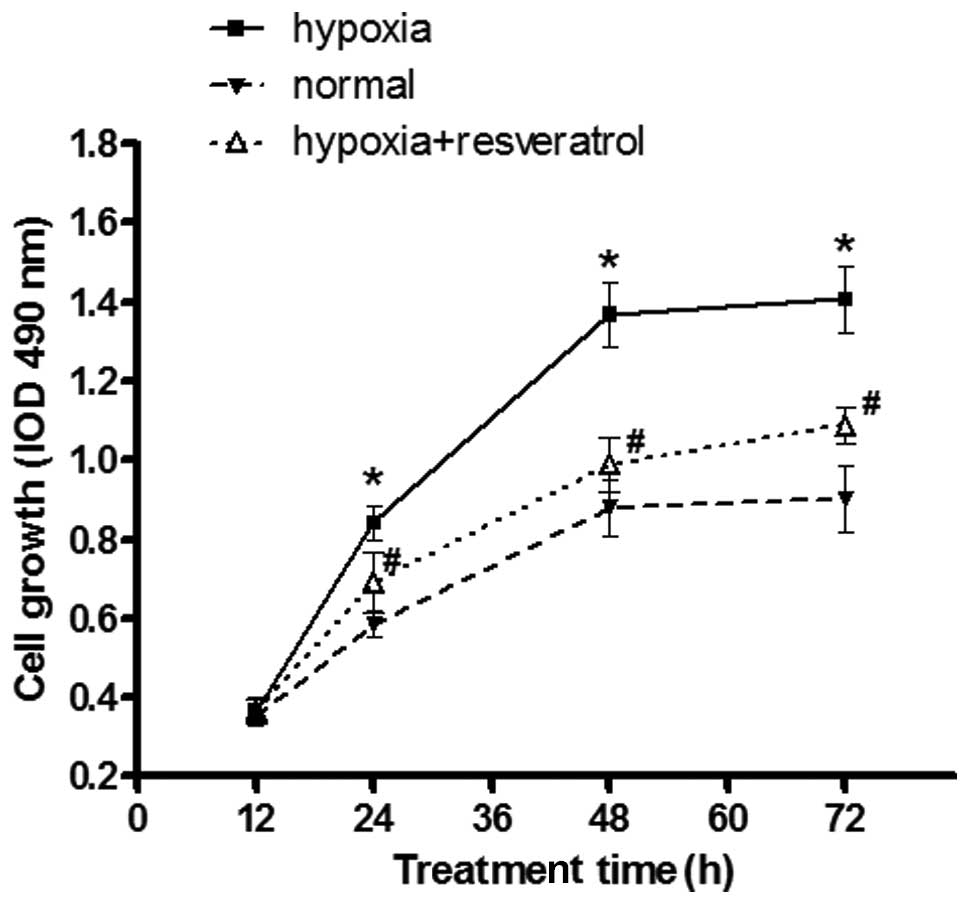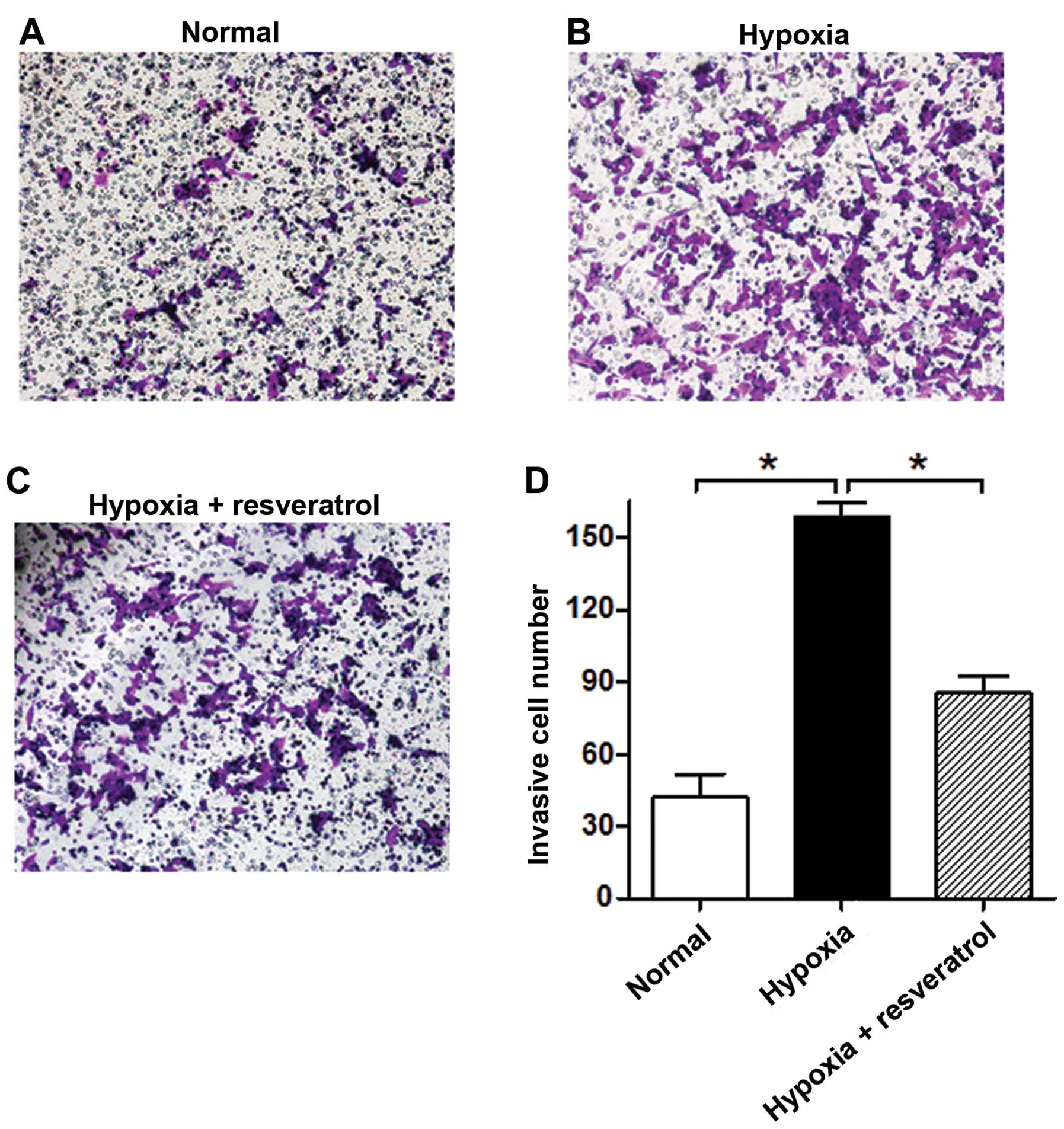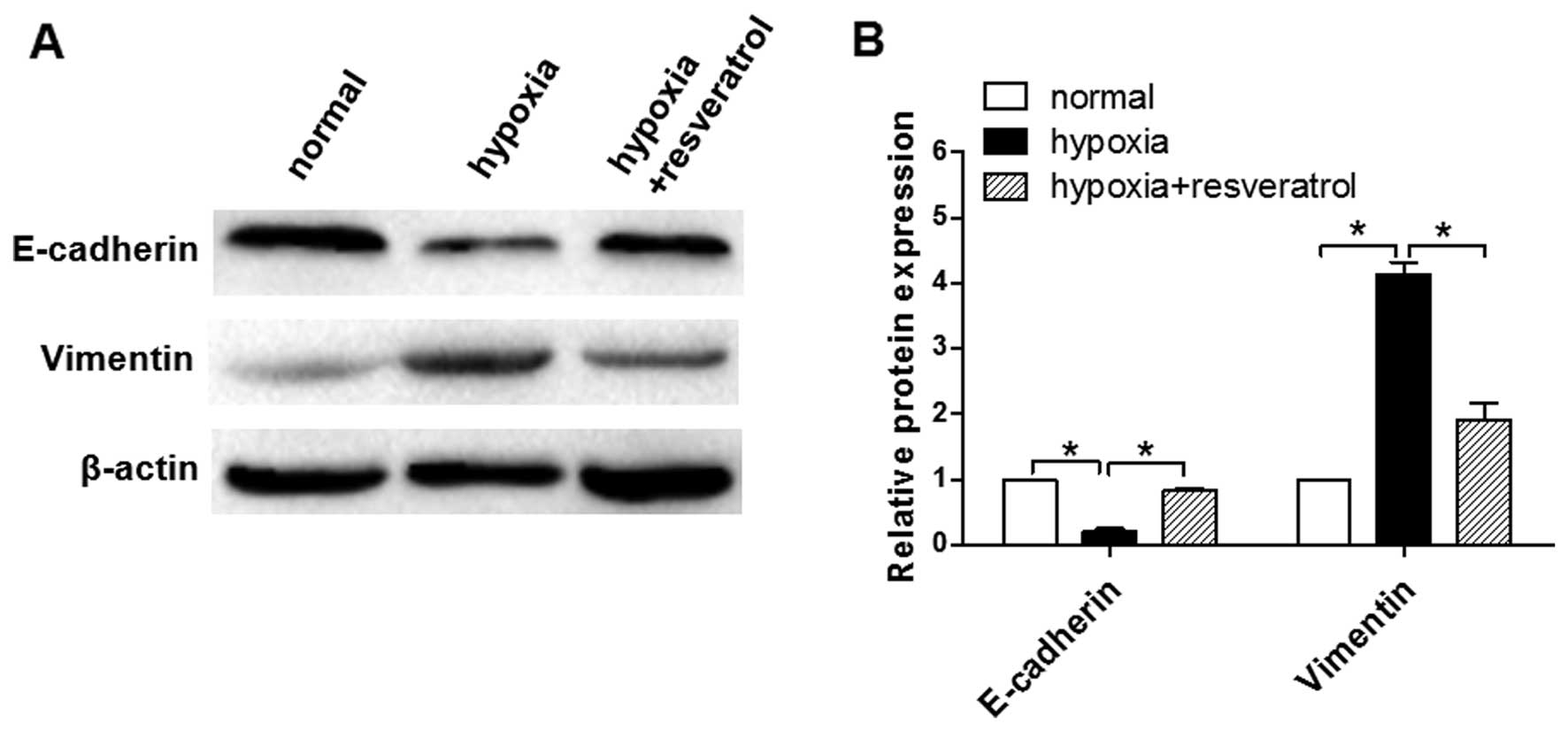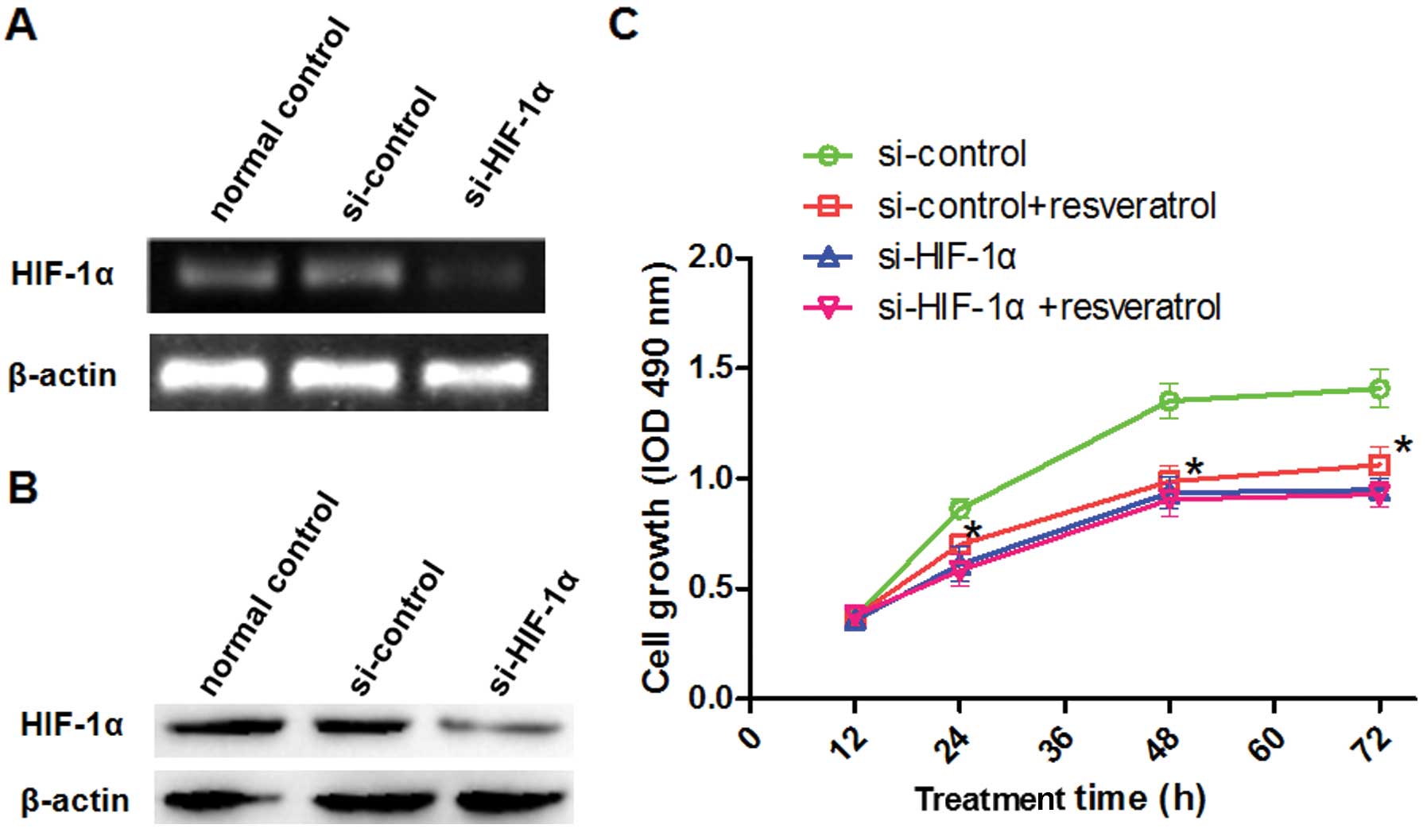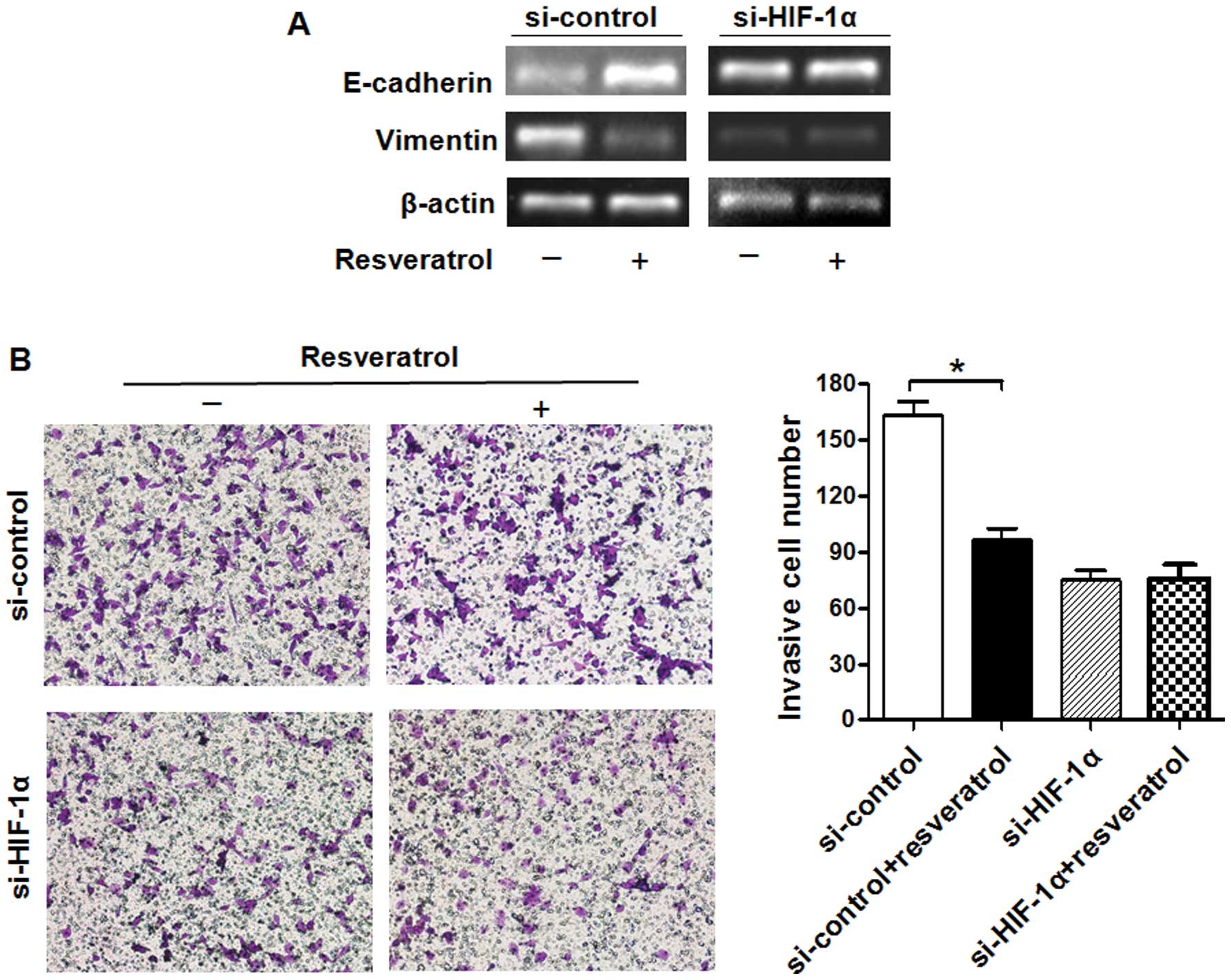|
1
|
Stiller CA: International patterns of
cancer incidence in adolescents. Cancer Treat Rev. 33:631–645.
2007. View Article : Google Scholar : PubMed/NCBI
|
|
2
|
Link MP, Goorin AM, Miser AW, et al: The
effect of adjuvant chemotherapy on relapse-free survival in
patients with osteosarcoma of the extremity. N Engl J Med.
314:1600–1606. 1986. View Article : Google Scholar : PubMed/NCBI
|
|
3
|
Harting MT, Blakely ML, Jaffe N, et al:
Long-term survival after aggressive resection of pulmonary
metastases among children and adolescents with osteosarcoma. J
Pediatr Surg. 41:194–199. 2006. View Article : Google Scholar : PubMed/NCBI
|
|
4
|
Meyers PA, Heller G, Healey JH, et al:
Osteogenic sarcoma with clinically detectable metastasis at initial
presentation. J Clin Oncol. 11:449–453. 1993.PubMed/NCBI
|
|
5
|
Geller DS and Gorlick R: Osteosarcoma: a
review of diagnosis, management, and treatment strategies. Clin Adv
Hematol Oncol. 8:705–718. 2010.
|
|
6
|
Michieli P: Hypoxia, angiogenesis and
cancer therapy: to breathe or not to breathe? Cell Cycle.
8:3291–3296. 2009. View Article : Google Scholar : PubMed/NCBI
|
|
7
|
Pennacchietti S, Michieli P, Galluzzo M,
Mazzone M, Giordano S and Comoglio PM: Hypoxia promotes invasive
growth by transcriptional activation of the met protooncogene.
Cancer Cell. 3:347–361. 2003. View Article : Google Scholar : PubMed/NCBI
|
|
8
|
Esteban MA, Tran MG, Harten SK, et al:
Regulation of E-cadherin expression by VHL and hypoxia-inducible
factor. Cancer Res. 66:3567–3575. 2006. View Article : Google Scholar : PubMed/NCBI
|
|
9
|
Semenza GL: Targeting HIF-1 for cancer
therapy. Nat Rev Cancer. 3:721–732. 2003. View Article : Google Scholar : PubMed/NCBI
|
|
10
|
Cheng ZX, Sun B, Wang SJ, et al: Nuclear
factor-κB-dependent epithelial to mesenchymal transition induced by
HIF-1α activation in pancreatic cancer cells under hypoxic
conditions. PLoS One. 6:e237522011. View Article : Google Scholar
|
|
11
|
Semenza GL: HIF-1 and tumor progression:
pathophysiology and therapeutics. Trends Mol Med. 8:S62–S67. 2002.
View Article : Google Scholar : PubMed/NCBI
|
|
12
|
Imai T, Horiuchi A, Wang C, et al: Hypoxia
attenuates the expression of E-cadherin via up-regulation of SNAIL
in ovarian carcinoma cells. Am J Pathol. 163:1437–1447. 2003.
View Article : Google Scholar : PubMed/NCBI
|
|
13
|
Yang MH and Wu KJ: TWIST activation by
hypoxia inducible factor-1 (HIF-1): implications in metastasis and
development. Cell Cycle. 7:2090–2096. 2008. View Article : Google Scholar : PubMed/NCBI
|
|
14
|
Harris AL: Hypoxia - a key regulatory
factor in tumour growth. Nat Rev Cancer. 2:38–47. 2002. View Article : Google Scholar : PubMed/NCBI
|
|
15
|
Gupta GP and Massague J: Cancer
metastasis: building a framework. Cell. 127:679–695. 2006.
View Article : Google Scholar : PubMed/NCBI
|
|
16
|
Birner P, Schindl M, Obermair A, Plank C,
Breitenecker G and Oberhuber G: Overexpression of hypoxia-inducible
factor 1alpha is a marker for an unfavorable prognosis in
early-stage invasive cervical cancer. Cancer Res. 60:4693–4696.
2000.PubMed/NCBI
|
|
17
|
Birner P, Schindl M, Obermair A,
Breitenecker G and Oberhuber G: Expression of hypoxia-inducible
factor 1alpha in epithelial ovarian tumors: its impact on prognosis
and on response to chemotherapy. Clin Cancer Res. 7:1661–1668.
2001.PubMed/NCBI
|
|
18
|
Aebersold DM, Burri P, Beer KT, et al:
Expression of hypoxia-inducible factor-1alpha: a novel predictive
and prognostic parameter in the radiotherapy of oropharyngeal
cancer. Cancer Res. 61:2911–2916. 2001.PubMed/NCBI
|
|
19
|
Koukourakis MI, Giatromanolaki A,
Skarlatos J, et al: Hypoxia inducible factor (HIF-1α and HIF-2α)
expression in early esophageal cancer and response to photodynamic
therapy and radiotherapy. Cancer Res. 61:1830–1832. 2001.PubMed/NCBI
|
|
20
|
Soleas GJ, Diamandis EP and Goldberg DM:
Wine as a biological fluid: history, production, and role in
disease prevention. J Clin Lab Anal. 11:287–313. 1997. View Article : Google Scholar : PubMed/NCBI
|
|
21
|
Aggarwal BB, Bhardwaj A, Aggarwal RS,
Seeram NP, Shishodia S and Takada Y: Role of resveratrol in
prevention and therapy of cancer: preclinical and clinical studies.
Anticancer Res. 24:2783–2840. 2004.PubMed/NCBI
|
|
22
|
Zhang Q, Tang X, Lu QY, Zhang ZF, Brown J
and Le AD: Resveratrol inhibits hypoxia-induced accumulation of
hypoxia-inducible factor-1alpha and VEGF expression in human tongue
squamous cell carcinoma and hepatoma cells. Mol Cancer Ther.
4:1465–1474. 2005. View Article : Google Scholar : PubMed/NCBI
|
|
23
|
Jang M, Cai L, Udeani GO, et al: Cancer
chemopreventive activity of resveratrol, a natural product derived
from grapes. Science. 275:218–220. 1997. View Article : Google Scholar : PubMed/NCBI
|
|
24
|
Kundu JK, Chun KS, Kim SO and Surh YJ:
Resveratrol inhibits phorbol ester-induced cyclooxygenase-2
expression in mouse skin: MAPKs and AP-1 as potential molecular
targets. Biofactors. 21:33–39. 2004. View Article : Google Scholar
|
|
25
|
Cao Z, Fang J, Xia C, Shi X and Jiang BH:
trans-3,4,5′-Trihydroxystibene inhibits hypoxia-inducible factor
1alpha and vascular endothelial growth factor expression in human
ovarian cancer cells. Clin Cancer Res. 10:5253–5263. 2004.
View Article : Google Scholar : PubMed/NCBI
|
|
26
|
Aziz MH, Kumar R and Ahmad N: Cancer
chemoprevention by resveratrol: In vitro and in vivo studies and
the underlying mechanisms (review). Int J Oncol. 23:17–28.
2003.PubMed/NCBI
|
|
27
|
Jiang H, Zhang L, Kuo J, et al:
Resveratrol-induced apoptotic death in human U251 glioma cells. Mol
Cancer Ther. 4:554–561. 2005. View Article : Google Scholar : PubMed/NCBI
|
|
28
|
Wang TT, Schoene NW, Kim EK and Kim YS:
Pleiotropic effects of the sirtuin inhibitor sirtinol involves
concentration-dependent modulation of multiple nuclear
receptor-mediated pathways in androgen-responsive prostate cancer
cell LNCaP. Mol Carcinog. 52:676–685. 2013. View Article : Google Scholar
|
|
29
|
Juan ME, Alfaras I and Planas JM:
Colorectal cancer chemoprevention by trans-resveratrol. Pharmacol
Res. 65:584–591. 2012. View Article : Google Scholar : PubMed/NCBI
|
|
30
|
Liu P, Wang X, Hu C and Hu T: Inhibition
of proliferation and induction of apoptosis by trimethoxyl stilbene
(TMS) in a lung cancer cell line. Asian Pac J Cancer Prev.
12:2263–2269. 2011.
|
|
31
|
Zhou JH, Cheng HY, Yu ZQ, He DW, Pan Z and
Yang DT: Resveratrol induces apoptosis in pancreatic cancer cells.
Chin Med J (Engl). 124:1695–1699. 2011.
|
|
32
|
Yu HB, Zhang HF, Zhang X, et al:
Resveratrol inhibits VEGF expression of human hepatocellular
carcinoma cells through a NF-kappa B-mediated mechanism.
Hepatogastroenterology. 57:1241–1246. 2010.
|
|
33
|
Li Y, Bäckesjö CM, Haldosén LA and
Lindgren U: Resveratrol inhibits proliferation and promotes
apoptosis of osteosarcoma cells. Eur J Pharmacol. 609:13–18. 2009.
View Article : Google Scholar : PubMed/NCBI
|
|
34
|
Liu Z, Li Y and Yang R: Effects of
resveratrol on vascular endothelial growth factor expression in
osteosarcoma cells and cell proliferation. Oncol Lett. 4:837–839.
2012.PubMed/NCBI
|
|
35
|
Gusman J, Malonne H and Atassi G: A
reappraisal of the potential chemopreventive and chemotherapeutic
properties of resveratrol. Carcinogenesis. 22:1111–1117. 2001.
View Article : Google Scholar : PubMed/NCBI
|
|
36
|
Aleffi S, Petrai I, Bertolani C, et al:
Upregulation of proinflammatory and proangiogenic cytokines by
leptin in human hepatic stellate cells. Hepatology. 42:1339–1348.
2005. View Article : Google Scholar : PubMed/NCBI
|
|
37
|
Novo E, Cannito S, Zamara E, et al:
Proangiogenic cytokines as hypoxia-dependent factors stimulating
migration of human hepatic stellate cells. Am J Pathol.
170:1942–1953. 2007. View Article : Google Scholar : PubMed/NCBI
|
|
38
|
Zagzag D, Zhong H, Scalzitti JM, Laughner
E, Simons JW and Semenza GL: Expression of hypoxia-inducible factor
1alpha in brain tumors: association with angiogenesis, invasion,
and progression. Cancer. 88:2606–2618. 2000. View Article : Google Scholar : PubMed/NCBI
|
|
39
|
Zhong H, Chiles K, Feldser D, et al:
Modulation of hypoxia-inducible factor 1alpha expression by the
epidermal growth factor/phosphatidylinositol 3-kinase/PTEN/AKT/FRAP
pathway in human prostate cancer cells: implications for tumor
angiogenesis and therapeutics. Cancer Res. 60:1541–1545.
2000.PubMed/NCBI
|
|
40
|
Zhang Q, Zhang ZF, Rao JY, et al:
Treatment with siRNA and antisense oligonucleotides targeted to
HIF-1alpha induced apoptosis in human tongue squamous cell
carcinomas. Int J Cancer. 111:849–857. 2004. View Article : Google Scholar : PubMed/NCBI
|
|
41
|
Akakura N, Kobayashi M, Horiuchi I, et al:
Constitutive expression of hypoxia-inducible factor-1alpha renders
pancreatic cancer cells resistant to apoptosis induced by hypoxia
and nutrient deprivation. Cancer Res. 61:6548–6554. 2001.PubMed/NCBI
|
|
42
|
Lei J, Ma J, Ma Q, et al: Hedgehog
signaling regulates hypoxia induced epithelial to mesenchymal
transition and invasion in pancreatic cancer cells via a
ligand-independent manner. Mol Cancer. 12:662013. View Article : Google Scholar : PubMed/NCBI
|
|
43
|
Krishnamachary B, Berg-Dixon S, Kelly B,
et al: Regulation of colon carcinoma cell invasion by
hypoxia-inducible factor 1. Cancer Res. 63:1138–1143.
2003.PubMed/NCBI
|
|
44
|
Huber MA, Kraut N and Beug H: Molecular
requirements for epithelial-mesenchymal transition during tumor
progression. Curr Opin Cell Biol. 17:548–558. 2005. View Article : Google Scholar : PubMed/NCBI
|
|
45
|
Shi XP, Miao S, Wu Y, et al: Resveratrol
sensitizes tamoxifen in antiestrogen-resistant breast cancer cells
with epithelial-mesenchymal transition features. Int J Mol Sci.
14:15655–15668. 2013. View Article : Google Scholar : PubMed/NCBI
|
|
46
|
Shen YA, Lin CH, Chi WH, et al:
Resveratrol impedes the stemness, epithelial-mesenchymal
transition, and metabolic reprogramming of cancer stem cells in
nasopharyngeal carcinoma through p53 activation. Evid Based
Complement Alternat Med. 2013:5903932013. View Article : Google Scholar : PubMed/NCBI
|
|
47
|
Li W, Ma J, Ma Q, et al: Resveratrol
inhibits the epithelial-mesenchymal transition of pancreatic cancer
cells via suppression of the PI-3K/Akt/NF-κB pathway. Curr Med
Chem. 20:4185–4194. 2013. View Article : Google Scholar
|
|
48
|
Tsai JH, Hsu LS, Lin CL, et al:
3,5,4′-Trimethoxystilbene, a natural methoxylated analog of
resveratrol, inhibits breast cancer cell invasiveness by
downregulation of PI3K/Akt and Wnt/β-catenin signaling cascades and
reversal of epithelial-mesenchymal transition. Toxicol Appl
Pharmacol. 272:746–756. 2013. View Article : Google Scholar : PubMed/NCBI
|
|
49
|
Wang H, Zhang H, Tang L, et al:
Resveratrol inhibits TGF-β1-induced epithelial-to-mesenchymal
transition and suppresses lung cancer invasion and metastasis.
Toxicology. 303:139–146. 2013. View Article : Google Scholar
|
|
50
|
Hu FW, Tsai LL, Yu CH, Chen PN, Chou MY
and Yu CC: Impairment of tumor-initiating stem-like property and
reversal of epithelial-mesenchymal transdifferentiation in head and
neck cancer by resveratrol treatment. Mol Nutr Food Res.
56:1247–1258. 2012. View Article : Google Scholar : PubMed/NCBI
|
|
51
|
Mitchell SH, Zhu W and Young CY:
Resveratrol inhibits the expression and function of the androgen
receptor in LNCaP prostate cancer cells. Cancer Res. 59:5892–5895.
1999.PubMed/NCBI
|
|
52
|
Schneider Y, Vincent F, Duranton B, et al:
Anti-proliferative effect of resveratrol, a natural component of
grapes and wine, on human colonic cancer cells. Cancer Lett.
158:85–91. 2000. View Article : Google Scholar : PubMed/NCBI
|
|
53
|
Estrov Z, Shishodia S, Faderl S, et al:
Resveratrol blocks interleukin-1beta-induced activation of the
nuclear transcription factor NF-kappaB, inhibits proliferation,
causes S-phase arrest, and induces apoptosis of acute myeloid
leukemia cells. Blood. 102:987–995. 2003. View Article : Google Scholar : PubMed/NCBI
|















